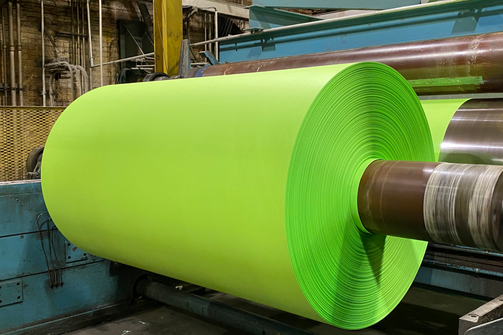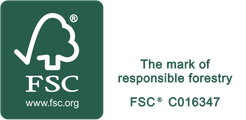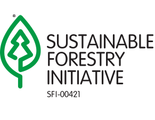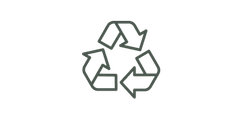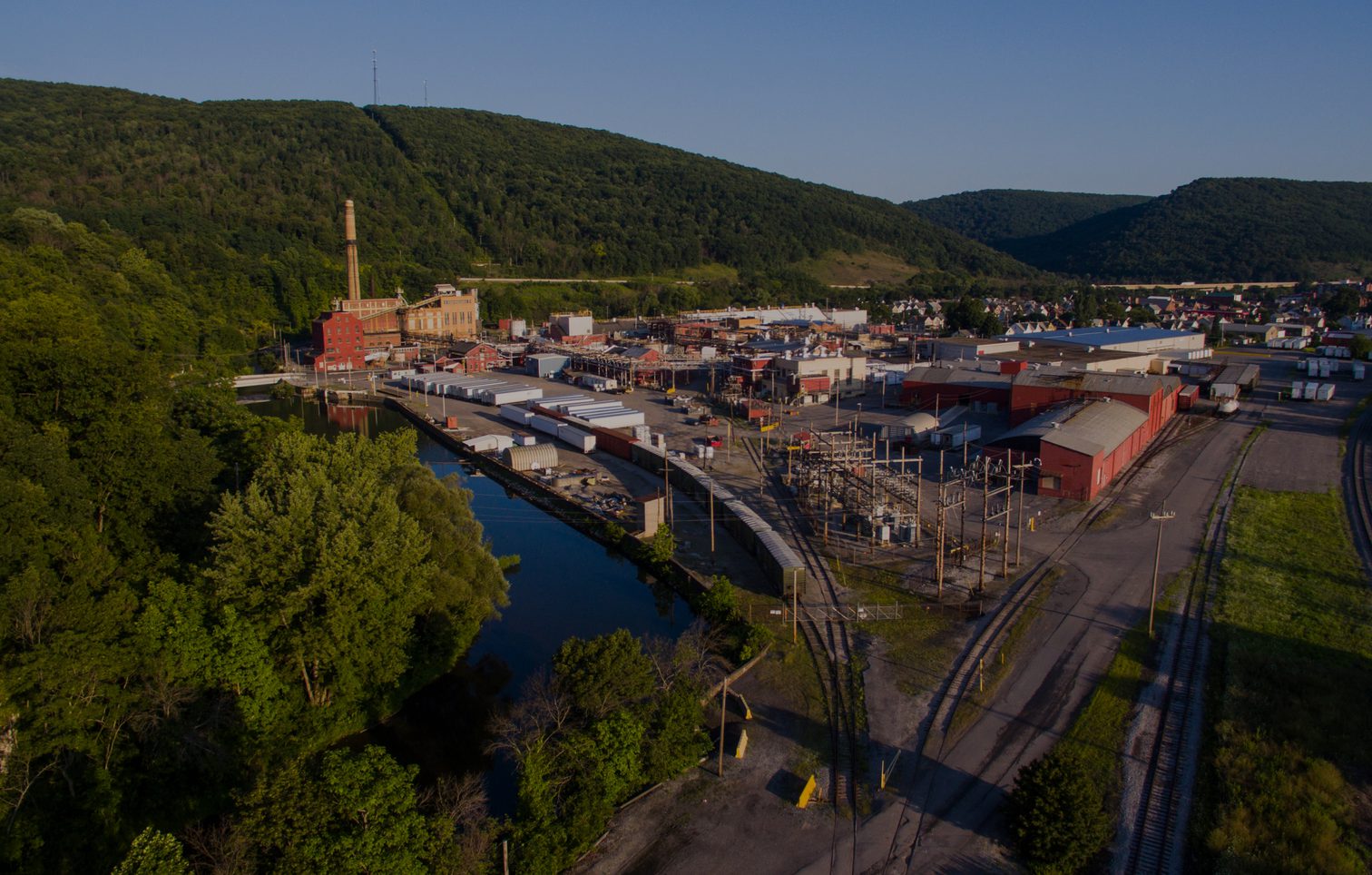
Rewriting Paper
Sustainability
Sustainability isn't just a goal—it's a commitment woven into every aspect of our operations. Let American Eagle Paper Mills help you drive sustainable change in your organization.
Creating a world where sustainability and quality coexist in harmony.
Calculate Your Impact
See the Difference You Can You Make by Switching to Recycled Paper
Calculate Your Impact
Let us help you on your mission to minimize your environmental footprint and leave a greener legacy.
Eco-Conscious and
Committed to the Planet
With unwavering dedication, American Eagle Paper Mills is creating a world where sustainability and quality coexist harmoniously.
Our Sustainability Initiatives
American Eagle Paper Mills has long been committed to sustainable practices, investing nearly $40 million in sustainability upgrades since 2003. Our dedication to environmental stewardship is evident through impactful initiatives aimed at reducing waste, maximizing resource efficiency, and leading the industry toward a greener future.
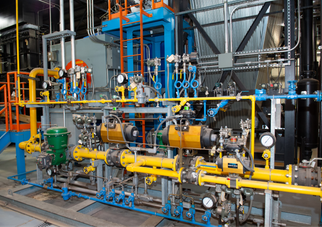
Phoenix Initiative
With a primary focus on reducing electricity, water, and steam consumption while maintaining the production of high-quality recycled uncoated papers, the Phoenix Initiative has propelled American Eagle Paper Mills to the forefront of environmental leadership.
Introduction:
In 2013, American Eagle Paper Mills launched the Phoenix Initiative, a bold endeavor aimed at reinventing the mill’s critical infrastructures with a primary focus on environmental efficiency. Completed in August 2016, the Phoenix Initiative has not only transformed the operations at American Eagle Paper Mills but has also positioned the company as a true environmental leader in the manufacturing of 100% recycled paper.
Situated in Tyrone, PA, American Eagle Paper Mills boasts a rich history dating back to its establishment in 1880. Once operated by MWV (formerly Westvaco), the mill had seen significant changes over the years. Prior to American Eagle Paper Mills stepping in, the facility housed five paper machines. However, the elaborate energy infrastructure was deemed larger than necessary for just the two machines in operation, leading to systemic inefficiencies
Initiative and Implementation:
The Phoenix Initiative commenced with a comprehensive redesign of the mill's energy system. This included the installation of new power frequency converters and power factor correction equipment, along with the implementation of high-efficiency steam generation and distribution systems. Additionally, the initiative involved the conversion to locally sourced and low-cost Pennsylvania grid power, reducing reliance on non-renewable energy sources.
The completion of the Phoenix Initiative in August 2016 marked a significant milestone for American Eagle Paper Mills. The $8 million investment resulted in dramatic environmental improvements. Purchased energy efficiency improved by 33.7%, leading to a notable 67.7% annual reduction in greenhouse gas emissions. Moreover, the initiative facilitated an 18.1% reduction in process water usage and an impressive 83% decrease in water withdrawal from local watersheds.
One of the most remarkable achievements of the Phoenix Initiative was the banning of coal usage at the mill. The strategic move majorly contributed to a cleaner environment and eliminated the transportation of 70,000 tons of coal and 10,000 tons of coal ash through the town of Tyrone, PA, enhancing the safety and well-being of the local community.
Celebration and Recognition:
American Eagle Paper Mills celebrated the successful completion of the Phoenix Initiative with an event in September 2016. With over 150 guests in attendance, including local politicians, business leaders, mill employees, and the Phoenix Initiative team, the group gathered to commemorate the huge accomplishment. Mill leadership praised the dedication and ingenuity of the team, emphasizing that much of the project was engineered and executed by the mill's own employees.
The achievements of the Phoenix Initiative garnered significant attention from both local and national media outlets. Stories highlighting the project's environmental savings and its impact on the community were widely covered and praised. This positive publicity not only enhanced the reputation of American Eagle Paper Mills but also underscored the company's commitment to sustainability and innovation in the paper manufacturing industry.
In Conclusion
The Phoenix Initiative exemplifies American Eagle Paper Mills' dedication to environmental stewardship and continuous improvement. By reinventing its critical infrastructures with a focus on environmental efficiency, the company has achieved substantial reductions in energy and water usage and eliminated its reliance on coal, significantly contributing to a cleaner and safer environment for the community. Moving forward, American Eagle Paper Mills remains steadfast in its commitment to sustainability, setting new standards for paper production in the industry.

Stack Demolition
Currently underway, this initiative involves the removal of asbestos and the demolition of the old 300-foot smoke stack, the five-story boiler room, and a storage facility.
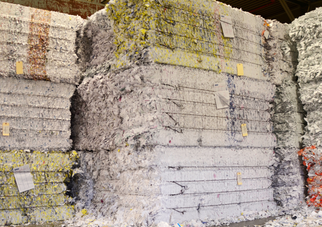
Closed Loop Recycling
Our recycling program embodies our commitment to sustainability, creating a seamless cycle of paper production and recycling. As scrap material is converted and transformed into high-quality paper, we minimize waste and maximize the efficiency of our resources.
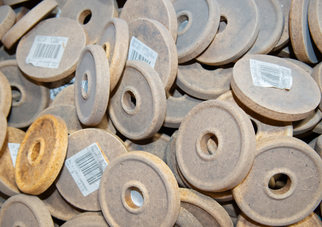
Core Plug Recycling
Through Core Plug Recycling, we collect and recycle core plugs used in our commercial product packaging. Instead of ending up in landfills, these vital components are reused, reducing waste and environmental impact.
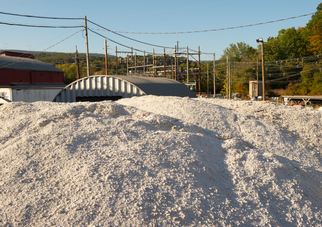
Residual Fiber Reclamation
Residual Fiber Reclamation involves the gathering of by-products from the paper-making process and transforming them into a valuable raw material for a new round of production. The “residual fiber” holds immense potential, and we're committed to harnessing it to its fullest extent through expanded sourcing and improvements to dispersion and bleaching.
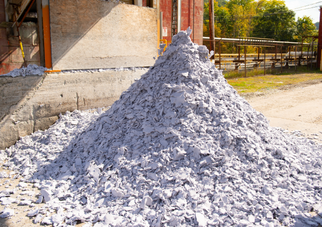
Fiber and Plastic Resurgence
As part of this initiative, we are exploring new methods to repurpose two key materials generated in our manufacturing processes. We are focusing on reclaiming fiber product material produced during our deinking process and evaluating the potential to reuse plastic shavings generated through our recycling process.
